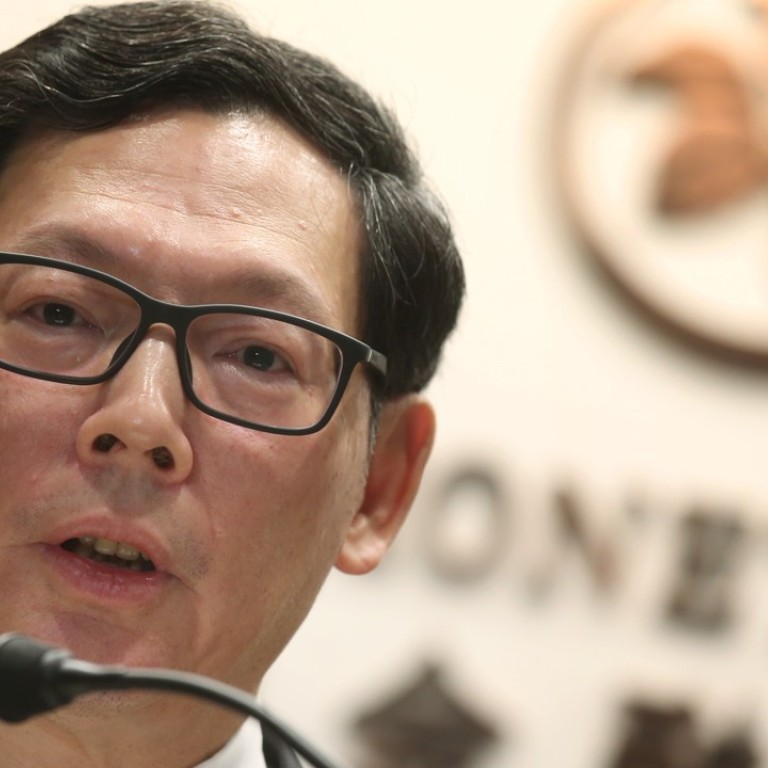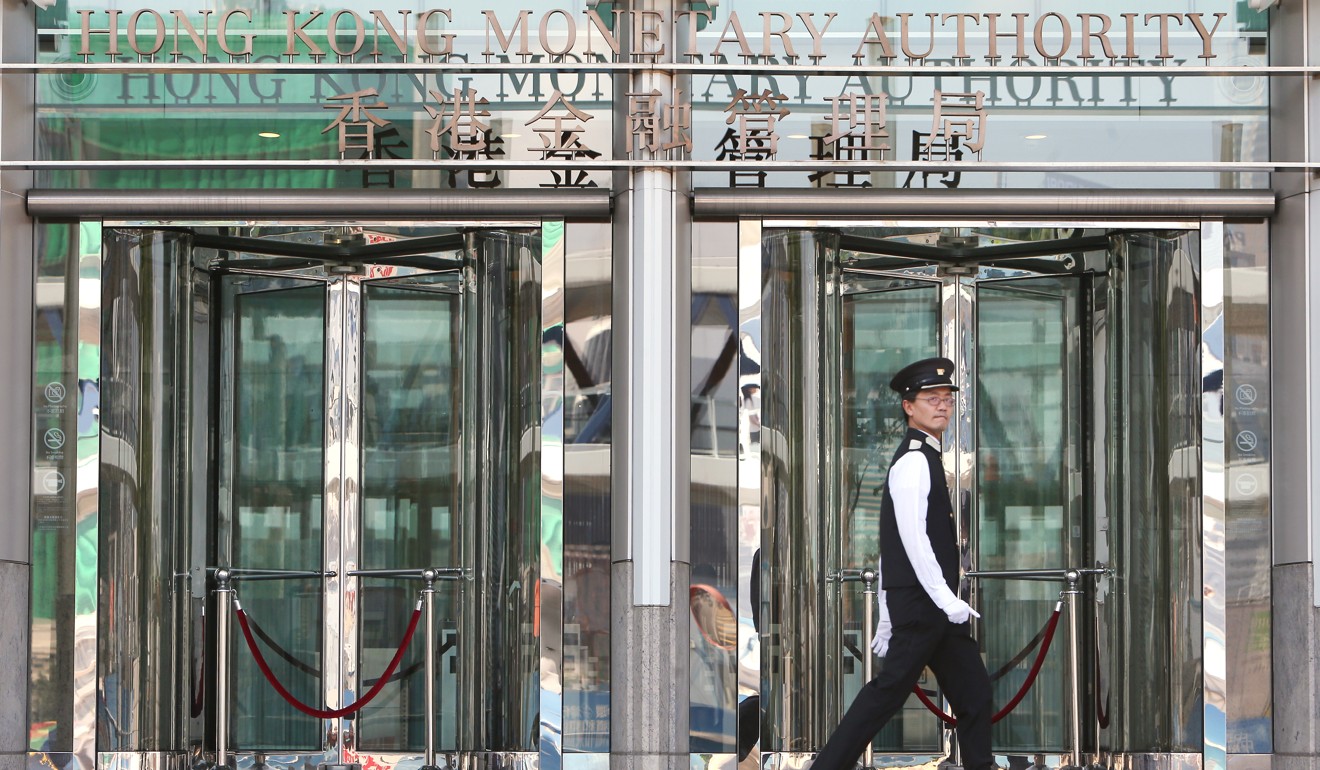
Hong Kong’s Exchange Fund posts weakest first-quarter gain since 2016 after losses from overseas stocks
Overseas stock investments lost HK$7.4 billion in the quarter, compared with a gain of HK$24.5 billion in the same period a year ago
Hong Kong’s Exchange Fund, the city’s reserves and asset war chest for defending its currency, has reported the worst first-quarter investment return since 2016, due to losses from overseas stock investments.
The fund has been unable to repeat last year’s record-breaking performance, with returns for the first three months revealed on Tuesday at HK$26.1 billion (US$3.32 billion), down 60 per cent from the HK$64.9 billion a year earlier. It is the lowest return since the first quarter of 2016, when the figure was HK$25.4 billion.
Overseas stock investments lost HK$7.4 billion in the quarter, compared with a gain of HK$24.5 billion 12 months ago.
During the first quarter the fund’s Hong Kong equity holdings also reported far lower gains at HK$1.7 billion, compared with a HK$14.3 billion gain at the same time last year.
The Dow Jones Industrial Average closed the first quarter of 2018 down about 2.5 per cent.
“The stock markets have been volatile in the first quarter. The US interest rate rise pace this year may be faster than the market expected. There are political tensions,” HKMA chief executive Norman Chan Tak-lam told the monthly financial affairs panel meeting on Tuesday morning, when he presented the latest Exchange Fund snapshot.
“These factors have implications over the investment markets. Investors need to be cautious about these risks.”

The Exchange Fund invests in domestic and international stocks, bonds and overseas assets.
During the quarter it had to spend HK$51 billion to buy Hong Kong dollars, as the currency weakened and more investors shifted into US dollars to profit from the wider gap between interest rates in Hong Kong and the US, Chan said.
Its total assets rose to HK$4.15 trillion as of the end March, compared with HK$4.015 trillion at the end of 2017.
The fund last year posted record annual high returns of HK$264 billion, almost four times the HK$68.1 billion earned in 2016. The benchmark Hang Seng Index rose 36 per cent that year, the best performing market worldwide.
Bond investments posted gains of HK$5.5 billion, compared with HK$6.4 billion, while foreign exchange gains – mainly from the translation of foreign exchange assets into Hong Kong dollars – came in at HK$26.3 billion, compared with HK$11.9 billion a year earlier. The Exchange Fund will pay HK$3.4 billion to the government.
“Stock markets worldwide were volatile in the first quarter due to worries over interest rate rises and a potential trade war between China and the US. And the Exchange Fund could not escape the impact of falling stock markets,” said Ben Kwong Man-bun, director of brokerage KGI Asia.
He expects share markets to continue to be volatile over the rest of the year, making it hard for the fund to repeat the same strong performance as 2017.
“The performance of the stock market [then] was particularly strong and is unlikely to be repeated. However, I do believe the fund can still achieve modest gains this year,” Kwong said.
“Stock markets worldwide may not have very strong growth this year, but they are showing no signs of a big crash either.
“Economic data in Hong Kong and China in the first quarter was not bad. This will support investment markets.”

